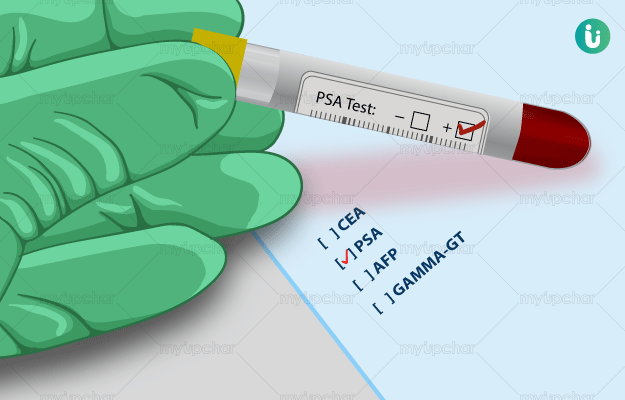What is a Prostate-specific Antigen (PSA) test?
A PSA test measures the amount of Prostate-specific Antigen, a protein present in both healthy and cancerous cells of the prostate gland. Prostate gland is part of the male reproductive system that produces the fluid which carries sperms during ejaculation.
A PSA test is generally performed along with a digital rectal exam (DRE) to check for prostate cancer and determine the nature of the problem in men who may or may not experience any apparent symptoms of the condition.
Find men health information






























